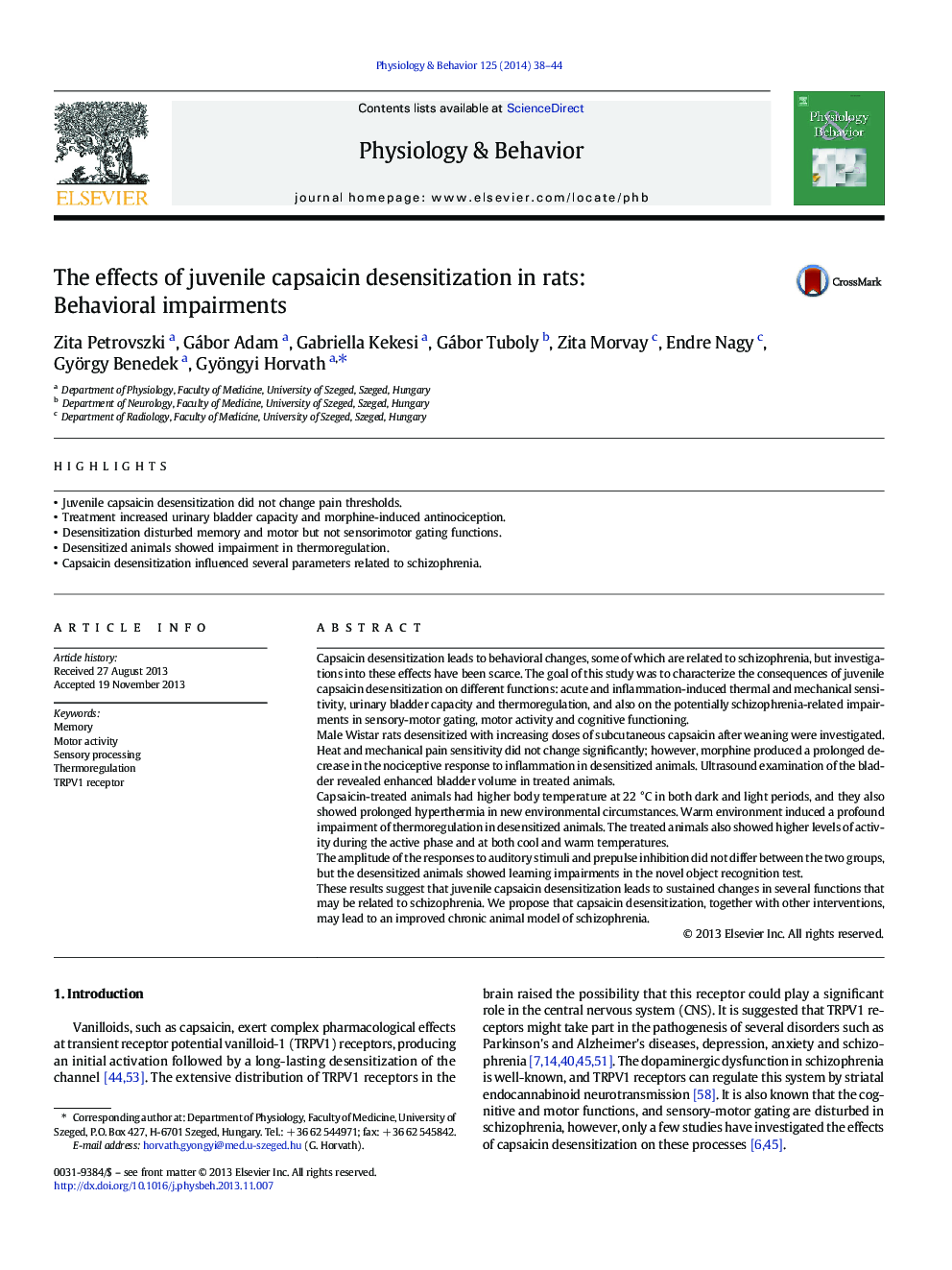| کد مقاله | کد نشریه | سال انتشار | مقاله انگلیسی | نسخه تمام متن |
|---|---|---|---|---|
| 2844310 | 1571192 | 2014 | 7 صفحه PDF | دانلود رایگان |
• Juvenile capsaicin desensitization did not change pain thresholds.
• Treatment increased urinary bladder capacity and morphine-induced antinociception.
• Desensitization disturbed memory and motor but not sensorimotor gating functions.
• Desensitized animals showed impairment in thermoregulation.
• Capsaicin desensitization influenced several parameters related to schizophrenia.
Capsaicin desensitization leads to behavioral changes, some of which are related to schizophrenia, but investigations into these effects have been scarce. The goal of this study was to characterize the consequences of juvenile capsaicin desensitization on different functions: acute and inflammation-induced thermal and mechanical sensitivity, urinary bladder capacity and thermoregulation, and also on the potentially schizophrenia-related impairments in sensory-motor gating, motor activity and cognitive functioning.Male Wistar rats desensitized with increasing doses of subcutaneous capsaicin after weaning were investigated.Heat and mechanical pain sensitivity did not change significantly; however, morphine produced a prolonged decrease in the nociceptive response to inflammation in desensitized animals. Ultrasound examination of the bladder revealed enhanced bladder volume in treated animals.Capsaicin-treated animals had higher body temperature at 22 °C in both dark and light periods, and they also showed prolonged hyperthermia in new environmental circumstances. Warm environment induced a profound impairment of thermoregulation in desensitized animals. The treated animals also showed higher levels of activity during the active phase and at both cool and warm temperatures.The amplitude of the responses to auditory stimuli and prepulse inhibition did not differ between the two groups, but the desensitized animals showed learning impairments in the novel object recognition test.These results suggest that juvenile capsaicin desensitization leads to sustained changes in several functions that may be related to schizophrenia. We propose that capsaicin desensitization, together with other interventions, may lead to an improved chronic animal model of schizophrenia.
Journal: Physiology & Behavior - Volume 125, 10 February 2014, Pages 38–44
